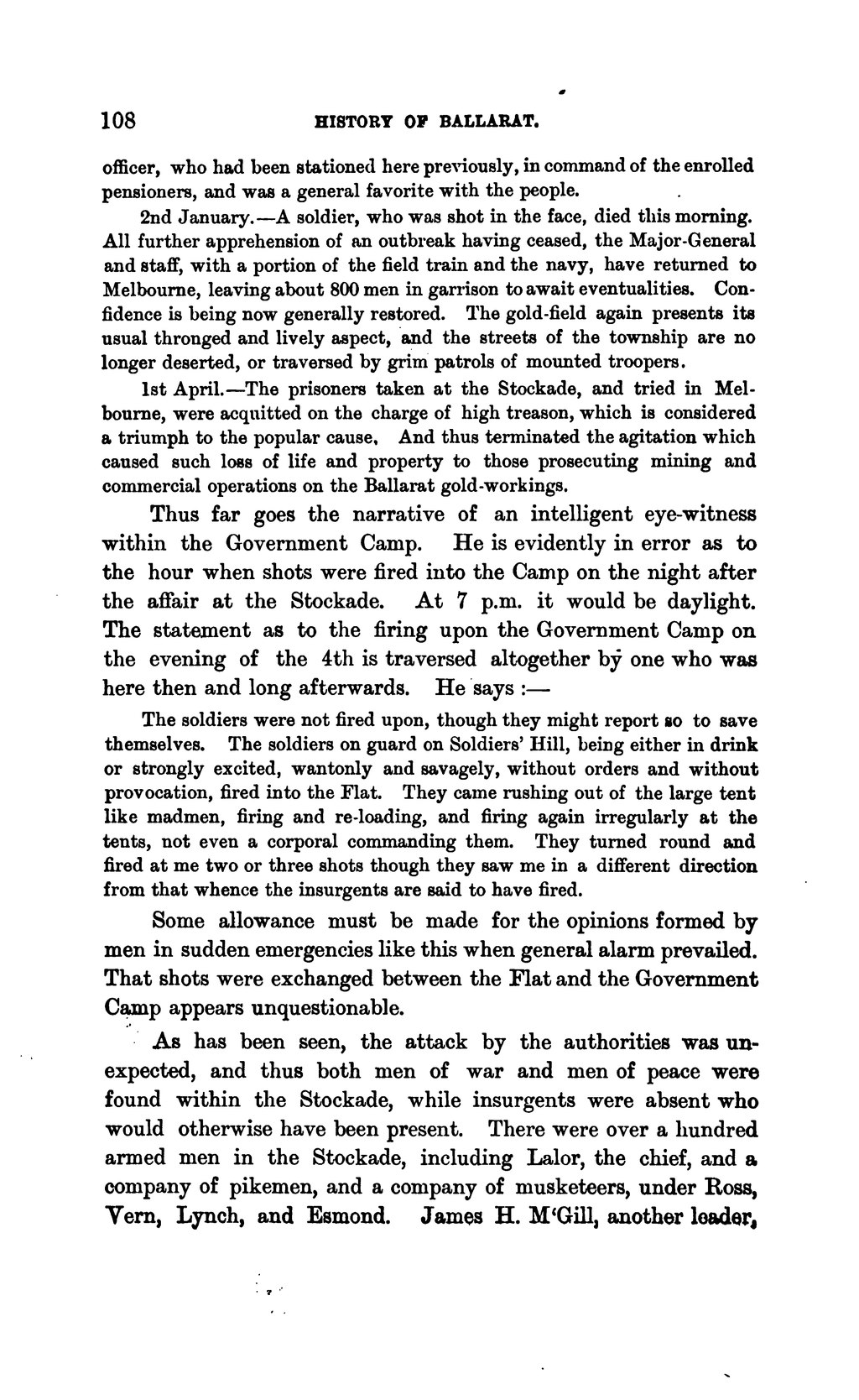officer, who had been stationed here previously, in command of the enrolled pensioners, and was a general favorite with the people.
2nd January. — A soldier, who was shot in the face, died this morning. All further apprehension of an outbreak having ceased, the Major-General and staff, with a portion of the field train and the navy, have returned to Melbourne, leaving about 800 men in garrison to await eventualities. Con- fidence is being now generally restored. The gold-field again presents its usual thronged and lively aspect, and the streets of the township are no longer deserted, or traversed by grim patrols of mounted troopers.
1st April. — The prisoners taken at the Stockade, and tried in Mel- bourne, were acquitted on the charge of high treason, which is considered a triumph to the popular cause. And thus terminated the agitation which caused such loss of life and property to those prosecuting mining and commercial operations on the Ballarat gold-workings.
Thus far goes the narrative of an intelligent eye-witness within the Government Camp. He is evidently in error as to the hour when shots were fired into the Camp on the night after the aflfair at the Stockade. At 7 p.m. it would be daylight. The statement as to the firing upon the Government Camp on the evening of the 4th is traversed altogether by one who was here then and long afterwards. He says : —
The soldiers were not fired upon, though they might report so to save themselves. The soldiers on guard on Soldiers' Hill, being either in drink or strongly excited, wantonly and savagely, without orders and without provocation, fired into the Flat. They came rushing out of the large tent like madmen, firing and re-loading, and firing again irregularly at the tents, not even a corporal commanding them. They turned round and fired at me two or three shots though they saw me in a different direction from that whence the insurgents are said to have fired.
Some allowance must be made for the opinions formed by men in sudden emergencies like this when general alarm prevailed. That shots were exchanged between the Flat and the Government Camp appears unquestionable.
As has been seen, the attack by the authorities was un- expected, and thus both men of war and men of peace were found within the Stockade, while insurgents were absent who would otherwise have been present. There were over a hundred armed men in the Stockade, including Lalor, the chief, and a company of pikemen, and a company of musketeers, under Boss, Yem, Lynch, and Esmond. James H. M'Gill, another loader^
